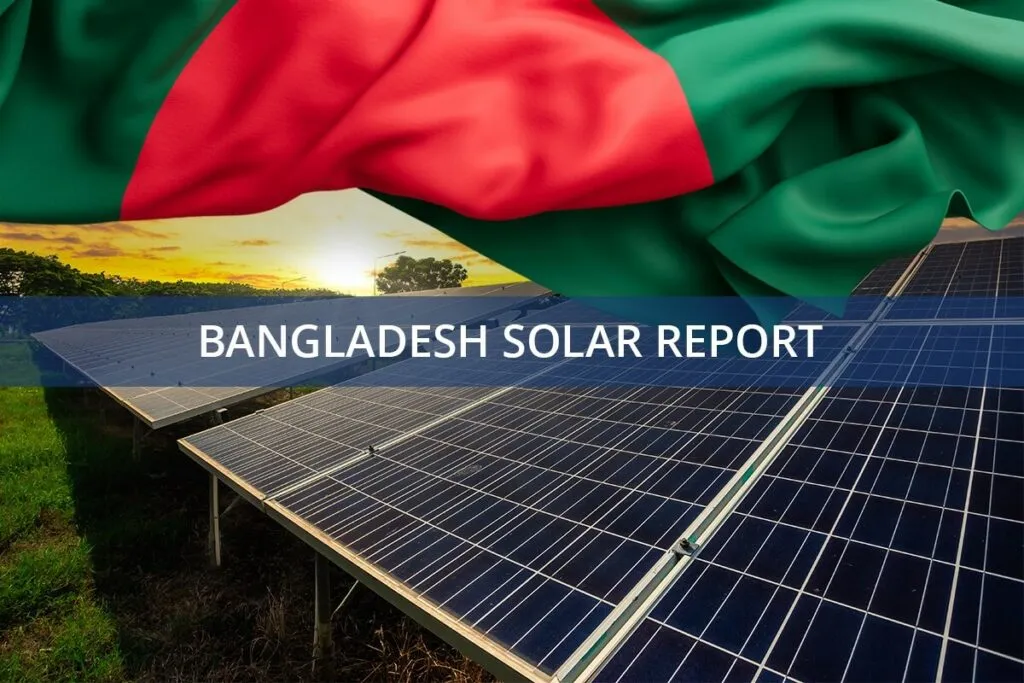Bangladesh Government’s Push for Rooftop Solar
The Bangladeshi government has unveiled an ambitious plan to install rooftop solar panels on all government buildings, a move aimed at generating electricity more sustainably and reducing the country’s reliance on fossil fuels.
Mandatory Solar Panels for All Government Buildings
The Cabinet Division has issued a circular mandating the installation of solar panels on all government offices, ministries, and departments. This directive builds upon a previous instruction from the Ministry of Housing and Public Works to install solar panels on all public buildings to encourage renewable energy adoption.
The government has set a target to generate 15,000 megawatts (MW) of solar power by 2041. Progress, however, has been slow, with only 1,000 MW of solar capacity installed to date. To accelerate this progress, the government has made it mandatory for all new government buildings to include rooftop solar installations.
Public buildings often have large, flat rooftops that are ideal for solar panel installation. By utilizing these spaces, the government aims to generate a significant amount of renewable energy and reduce its carbon footprint.
Solar Power: A Cornerstone of Bangladesh’s Renewable Energy Strategy
Solar power is a crucial component of Bangladesh’s renewable energy strategy, offering several advantages over other energy sources. Solar energy is abundant and free, making it a sustainable and reliable power source. Unlike fossil fuels, which are finite and subject to price fluctuations, solar power can be harnessed indefinitely.
Solar power is also environmentally friendly. Solar panels generate electricity without emitting greenhouse gases, making them a key tool in the fight against climate change. By increasing its solar capacity, Bangladesh can reduce its carbon emissions and contribute to global efforts to limit warming.
Generating more electricity domestically through a robust Bangladesh solar system can also help improve the nation’s energy security. The country currently imports a significant portion of its energy, making it vulnerable to fluctuations in international markets. By increasing domestic generation, Bangladesh can reduce its reliance on energy imports and enhance its energy independence.
Government Support for Solar Projects
The Bangladeshi government is committed to supporting the development of solar energy projects across the country. In addition to mandating solar panel installations on government buildings, it has introduced a net metering policy to encourage solar power adoption in the private sector.
Under the net metering policy, private households and businesses that install solar panels can sell excess electricity back to the national grid. This policy provides a financial incentive for individuals and companies to invest in solar power, helping to increase the country’s overall solar capacity.
The government has also announced plans to develop 15 solar power plants, which are expected to generate a total of 1,500 MW of electricity. These projects will further contribute to Bangladesh’s renewable energy goals and help the country transition to a cleaner, more sustainable energy system.
The Impact of Solar Power on Bangladesh’s Energy Future
The installation of solar panels on government buildings is set to significantly impact Bangladesh’s energy future. By generating electricity from renewable sources, the government can reduce its reliance on fossil fuels and lower its energy costs. These savings can then be redirected to other important areas, such as education, healthcare, and infrastructure development.
In addition to cost savings, the widespread adoption of solar power will help Bangladesh reduce its greenhouse gas emissions. Increasing the country’s renewable energy capacity will be essential as it seeks to meet its international climate commitments. With its low environmental impact and long-term sustainability, solar power is a critical part of this effort.
Challenges and Opportunities for Solar Energy in Bangladesh
While the government’s push for solar power is a positive step, several challenges must be addressed for its successful implementation. One major challenge is the upfront cost of installing a Bangladesh solar panel system, which can be a barrier for some government offices and private individuals.
To overcome this, the government could provide financial incentives, such as subsidies or low-interest loans. Raising public awareness about the long-term savings and environmental benefits of solar power could also encourage more investment in renewable energy.
Another hurdle is the need for skilled personnel to install and maintain solar panels. To meet this demand, the government could invest in training programs to build a workforce capable of supporting the growth of the solar industry.
Despite these challenges, the opportunities presented by solar power are significant. By investing in renewable energy, Bangladesh can position itself as a leader in the global transition to a low-carbon economy. The government’s focus on solar power is a crucial step toward achieving this vision and ensuring a sustainable energy future for the country. For more insights on overcoming challenges in solar energy adoption, visit Bangladesh solar energy challenges: 5 Critical Obstacles to Overcome.



